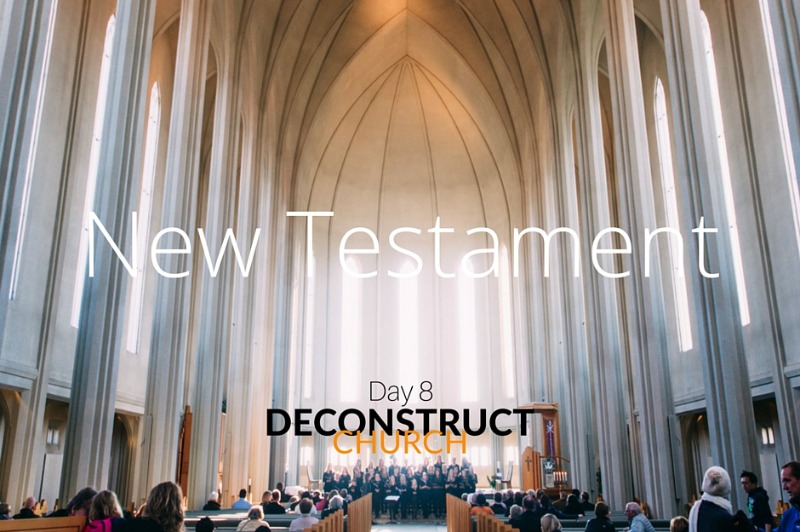The New Testament is about Jesus.
The later testament, this one written in Greek, is simple really. It tells the story of Jesus and then his followers. In some ways, the text we refer to as the New Testament never gets much more complicated than that.
The complexity doesn’t actually come from the Greek Scriptures at all. It come in how it relates to the bigger story.
[bctt tweet=”‘His body, his life, his death, all point to GOD.’ ” nofollow=”yes”]
It seems that Jesus really tries to keep it simple: everything he does points to GOD. Even him. His body, his life, his death, all point to GOD.
He does this by relating his work to Hebrew Scripture, the Old Testament. And he shows them what true devotion to GOD looks like. In his life, as their rabbi, then their Christ, and through his teachings, parables, and stories.
Of course, this later testament is more than the gospels: it is also letters to churches written in the 1st Century by their leaders. These letters, like letters written from camp or sent home from war and discovered decades later in a box on a shelf at the back of a closet are particular to a community and the moment in which they were written.
Unlike the disorienting difference of reading the Hebrew prophets for instance, we can get confused and think Paul or Peter were writing to us, as if through time. Like The Lake House. That Paul was writing just a few years before Shakespeare, and to that same European sensibility. Not as a Middle Eastern Jew under Roman occupation.
These letters were, however, written to teach. And they continue to do just that.
The particularity of these letters, though means they weren’t written for us. And we might confuse the needs they address for the universal question we desperately wish they answered. We often take them for truths about slavery, women in leadership, sexuality, and dietary practices. But these writers certainly weren’t writing for us.
We get to eavesdrop. And yet still learn from them.
These letters (epistles), like the gospel stories, ultimately point to Jesus. And Jesus points to GOD. A GOD who is the same GOD Jesus was reading about; the same GOD we pray to. The GOD of the Hebrew people, of the Old Testament and GOD of our faith.
This Newer Testament (Later Testament, Greek Scripture, etc.) is not a replacement text for the Older Testament (Earlier Testament, Hebrew Scripture, Hebrew Bible, etc.). Both are intent on revealing GOD. This is essential for the reader to take as truth, for Jesus speaks for himself that he did not come to replace the Law but to fulfill it. So too, does the later scripture come to fulfill the earlier.
Despite its Jesus-centric character, it’s rather disparate assortment of letters, and that crazy final book about the Apocalypse, the Greek Scripture reveals the same GOD in much the same vein as the Hebrew Scriptures. It just now has a different filter: Jesus. And he brings more focus and nuance to the conversation than we’re used to.
And if there is a deep thought to be had about the content of the Greek Scripture, the New Testament it is this: these books tell the story of a man, Jesus, called the Son of Humanity and Messiah, and who was, in the end, a dead, homeless Jew who observed and preached the Hebrew Scripture.
Ask Yourself
How comfortable am I with the gospel story? With the life and teachings of Jesus? Of his death and resurrection? And how do I deal with four different stories, all claiming to describe the life of Jesus?
How do I treat the Epistles? These letters, many written by Paul, form a great deal of the theology of the church. Do they speak, still? Do I hear our own church fights and conflicts in them?
What parts of the Hebrew Scriptures poke through into the teachings of Jesus? What did he focus on? What do I?
What choices do I make? When it seems like Jesus says something different from Paul, who wins?
As a Christian, must I prefer the Greek to the Hebrew? The New Testament to the Old? Must one replace the other? Interpret or change it? What are Jesus’s methods with Scripture? What are ours?
How do we read the letters or Acts? With patience and opportunity? Are they divine truth: revelation? How do excerpts of letters speak to us without their context? Dare we listen to them?
[This is Day 8 of How to start deconstructing church. The next in the series is “Gospel”. To start from the beginning, read the introduction here.]


Leave a Reply